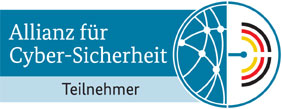The Importance of Implementing an Information Security Management System (ISMS)
In today’s interconnected and data-driven business landscape, information has become one of the most valuable assets for companies. As organizations rely heavily on technology and digital platforms, protecting sensitive data from threats has become a critical concern.
This is where an Information Security Management System (ISMS) plays a pivotal role. In this article, we will explore why it is essential for companies to have an ISMS and how it can help safeguard their information assets.
Definitions
An ISMS, or Information Security Management System, is a systematic approach to managing an organization’s information security processes, policies, and controls. It is a framework that provides a structured and holistic approach to protect the confidentiality, integrity, and availability of sensitive information assets within an organization.
The primary objective of an ISMS is to establish a set of coordinated security practices that align with the organization’s overall business goals and risk management strategies. It involves defining and implementing policies, procedures, guidelines, and controls to manage the security of information assets effectively.
Key components of an ISMS typically include:
- Risk Assessment: Identifying and assessing potential risks and vulnerabilities to the organization’s information assets, including data breaches, unauthorized access, and system failures.
- Security Policies: Developing comprehensive policies and guidelines that outline the organization’s approach to information security, including acceptable use, data classification, incident response, and access control.
- Asset Management: Inventorying and categorizing information assets based on their importance and sensitivity, ensuring proper protection measures are applied accordingly.
- Access Control: Implementing controls to manage user access privileges, authentication mechanisms, and authorization processes to ensure that only authorized individuals can access sensitive information.
- Incident Response: Establishing procedures and protocols to detect, respond to, and recover from security incidents, including data breaches, malware attacks, or system compromises.
- Business Continuity Planning: Developing strategies to maintain critical business operations during and after a security incident or a disruptive event, ensuring minimal impact on the organization’s functions and services.
- Security Awareness and Training: Promoting a culture of security within the organization through regular training programs and awareness campaigns to educate employees about security best practices and their roles in protecting information assets.
- Continuous Monitoring and Improvement: Regularly monitoring and evaluating the effectiveness of security controls, conducting audits, and implementing improvements to address emerging threats and vulnerabilities.
Commonly recognized standards for implementing an ISMS include ISO/IEC 27001, which provides a globally recognized framework for information security management, and NIST Cybersecurity Framework, developed by the National Institute of Standards and Technology in the United States.
ISMS Scope
Key goals of an ISMS are:
1. Protecting Confidentiality and Integrity:
Companies possess a vast amount of confidential information, including customer data, financial records, proprietary processes, and intellectual property. An ISMS provides a structured framework to identify, classify, and protect this valuable information from unauthorized access, disclosure, or modification. By implementing robust security controls and protocols, an ISMS ensures the confidentiality and integrity of sensitive data, reducing the risk of data breaches, leaks, and unauthorized usage.
2. Compliance with Legal and Regulatory Requirements:
In an era of increasing data privacy regulations, companies face stringent legal obligations to protect customer information and comply with industry-specific standards. Implementing an ISMS assists in meeting these requirements by providing a systematic approach to information security management. Whether it’s the General Data Protection Regulation (GDPR), Health Insurance Portability and Accountability Act (HIPAA), or Payment Card Industry Data Security Standard (PCI DSS), an ISMS helps companies establish and maintain a strong security posture, avoiding legal penalties and reputational damage.
3. Mitigating Risks and Vulnerabilities:
Cyber threats and attacks are a constant and evolving concern for businesses of all sizes. An ISMS helps identify potential risks and vulnerabilities within the company’s information systems and infrastructure. By conducting regular risk assessments and implementing appropriate controls, such as firewalls, encryption, and intrusion detection systems, an ISMS minimizes the likelihood of security incidents. It enables proactive monitoring, threat detection, and incident response, ensuring that companies can effectively manage security risks.
4. Enhancing Customer Trust and Competitive Advantage:
In today’s highly competitive marketplace, customers prioritize the security and privacy of their data. By implementing an ISMS, companies demonstrate their commitment to protecting customer information and build trust among their client base. A robust information security framework helps differentiate the organization from its competitors and can be a valuable marketing point, particularly when dealing with sensitive data or operating in industries where security is paramount. Additionally, companies that adhere to international standards such as ISO 27001 gain a competitive edge by showcasing their dedication to best practices in information security management.
5. Business Continuity and Disaster Recovery:
Information security incidents can have severe consequences, leading to financial losses, operational disruptions, and damage to the company’s reputation. An ISMS encompasses business continuity planning and disaster recovery strategies to minimize the impact of such incidents. By implementing appropriate backup mechanisms, incident response protocols, and recovery procedures, companies can quickly restore operations and maintain the trust of stakeholders in the event of a security breach or a disruptive event.
An ISMS provides a comprehensive framework to protect sensitive information, comply with legal obligations, mitigate risks, build customer trust, and ensure business continuity. By implementing an ISMS, organizations can safeguard their valuable assets, keep and even enhance their reputation.
The post The Importance of Implementing an Information Security Management System (ISMS) first appeared on Sorin Mustaca on Cybersecurity.


